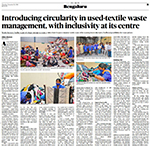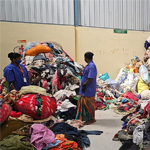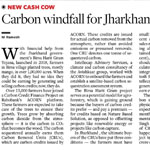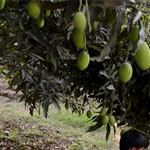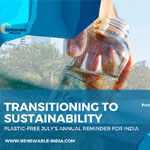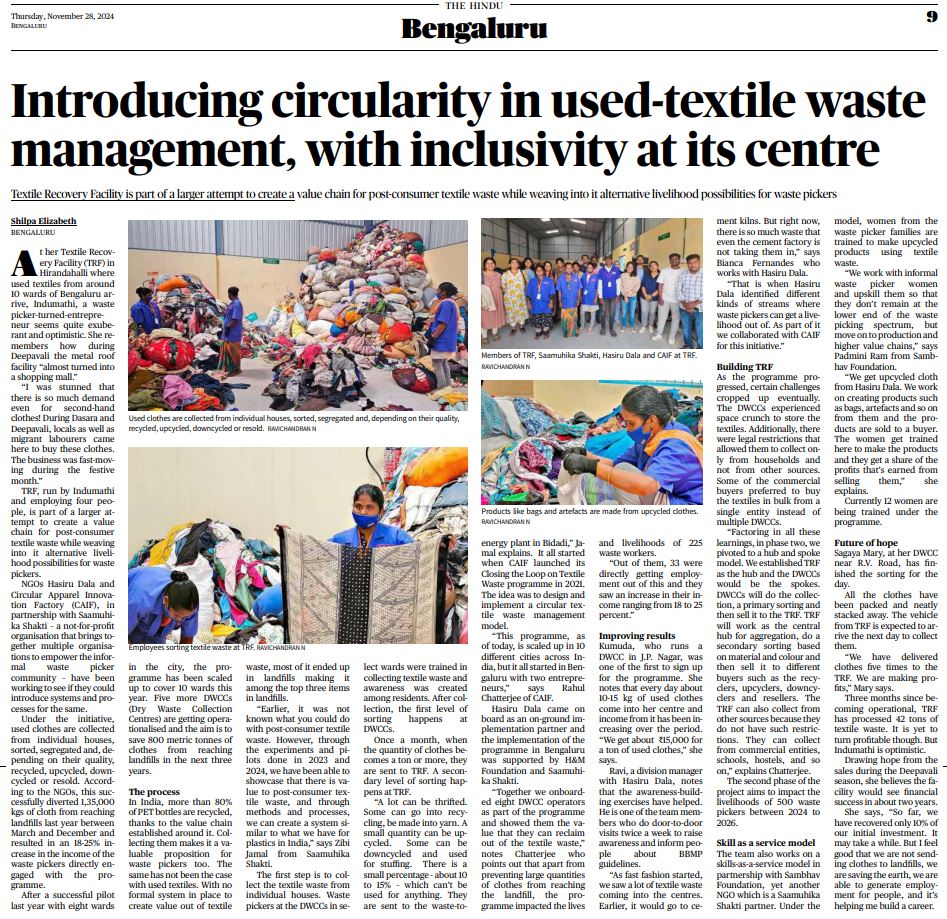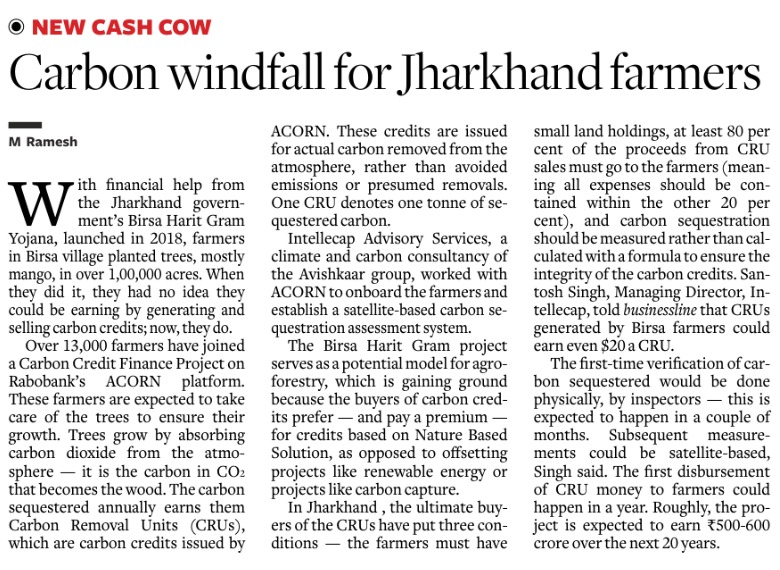-
The Hindu
| December, 03, 2024Introducing circularity in used-textile waste management, with inclusivity at its center- Coverage in the Hindu (Bengaluru Edition) on the work by Circular Apparel Innovation Factory (CAIF), Intellecap
Read More -
Youtube
| December, 03, 2024Introducing circularity in used-textile waste management, with inclusivity at its centre- Coverage of the work by CAIF, Intellecap with Hasiru Dala and Sambhav Foundation as part of the Saamuhika Shakti project in Bengaluru.
Read More -
The Hindu
| December, 03, 2024Introducing circularity in used-textile waste management, with inclusivity at its centre- Coverage of CAIF’s work in The Hindu
Read More -
Business Daily Africa
| November, 14, 2024Levelling the AI playing field for women in agriculture- Article by Intellecap’s Niharika Agarwal and Wambui Kuria
Read More -
Business Daily Africa
| November, 14, 2024COP29 Climate Christmas in Annual Summit at Azerbaijan: Article by Ashay Abbhi in Business Daily Africa
Read More -
MINT
| October, 15, 2024Carbon Windfall for Jharkhand Farmers- Pioneering initiative by Intellecap and Aavishkaar Group
Read More -
The Hindu Business Line
| October, 15, 2024Carbon credits to boost incomes of Jharkhand village farmers- Coverage by Hindu Business Line (Subscription based)
Read More -
cnbcafrica.com
| October, 15, 2024Investing in women-led SMEs for economic growth in Africa- Watch CNBC Africa’s interview with Karnika Yadav, Partner & Director, Intellecap
Read More -
Etedge Insights
| September, 17, 2024Revitalzing India’s CBG Mission- Article by Ankur Kathuria, Partner, Intellecap featured by ET Edge.
Read More -
Renewable India
| July, 22, 2024Plastic Free July – Annual reminder to transition to sustainable plastic consumption in India: Article by Devanshu Ralhan, CAIF in Renewable India
Read More



